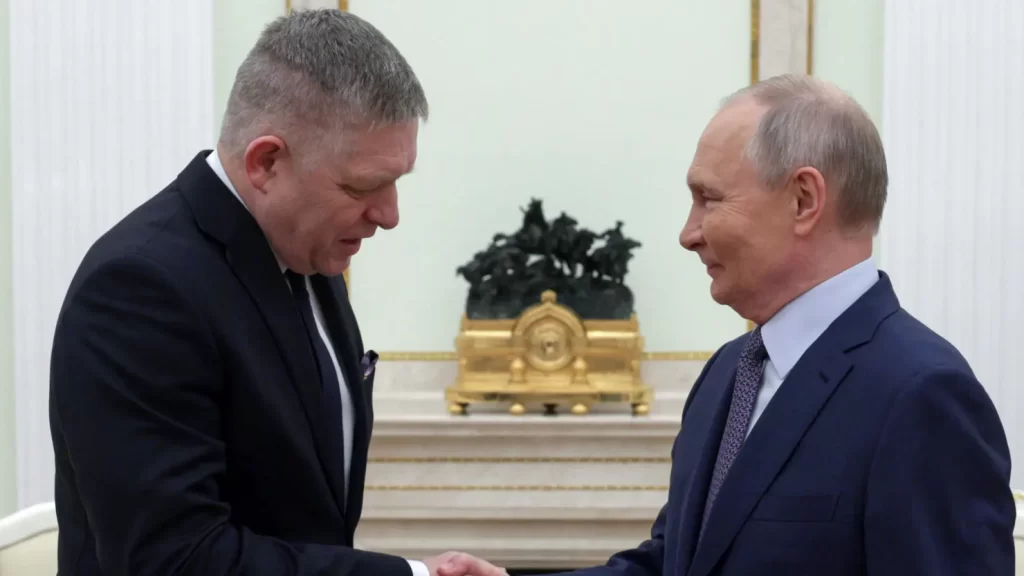EU Moves to Cut All Russian Energy Imports by 2027, But Moscow-Aligned Members Warn of ‘Economic Suicide’
Key Points:
- Eastern European allies of Russia are strongly opposing the European Union’s new plan to phase out all Russian gas, nuclear energy, and liquefied natural gas (LNG) imports by the end of 2027, calling it a threat to energy security and a “serious mistake.”
- The European Commission unveiled the proposal Tuesday, describing it as a strategic roadmap to end the EU’s dependence on Russian energy and bolster long-term energy independence.
According to F.M.I.E News, the plan will initially ban new and spot-market contracts for Russian gas by the end of 2025, with a full phase-out of all remaining imports by 2027. The proposal comes after two years of gradually decreasing reliance on Russian energy, triggered by Moscow’s 2022 invasion of Ukraine.
In 2021, around 45% of the EU’s gas came from Russia. By 2024, that figure had fallen to 19%, per European Commission data. Still, countries with long-standing energy ties to Moscow, such as Hungary and Slovakia, have voiced fierce objections.
Slovakian Prime Minister Robert Fico slammed the proposal, saying,
“This is simply economic suicide to agree that neither gas, nor nuclear, nor oil can be imported from Russia… just because some new Iron Curtain is being built between the Western world and perhaps Russia and other countries,”
as quoted by Slovak news agency TASR and translated by F.M.I.E.
Hungarian Foreign Minister Péter Szijjártó echoed those concerns, stating on social media:
“It threatens energy security, drives up prices and violates sovereignty. They want us to bear the cost of their reckless support for Ukraine. We firmly reject this.”
Both Slovakia and Hungary have long resisted EU pressure to cut energy ties with Russia. They’ve also opposed increases in EU military and financial support to Ukraine and have repeatedly pushed for concessions in exchange for extending sanctions on Russia—most recently in March 2025.
The European Commission’s proposal will be formally presented in June and must be approved by a qualified majority of member states. This means it cannot be blocked by individual nations.
“We can adopt it without unanimity,” EU Energy Commissioner Dan Jørgensen said Tuesday. “I hope that everybody will vote for it, obviously, but if they don’t, that is also part of the European Union—that sometimes the majority makes decisions when necessary.”
Jørgensen described the current dependence on Russian energy as “unacceptable,” accusing President Vladimir Putin of weaponizing energy exports to fund the war in Ukraine.
The EU said each member state will be required to submit national plans by year-end detailing how they intend to phase out Russian energy sources. Whether Slovakia and Hungary will comply remains uncertain.
A spokesperson for the European Commission told F.M.I.E News that the EU will work closely with concerned member states to implement the roadmap in a “gradual and well-managed” fashion, supported by diversification efforts and improved energy infrastructure.
Source: F.M.I.E News

